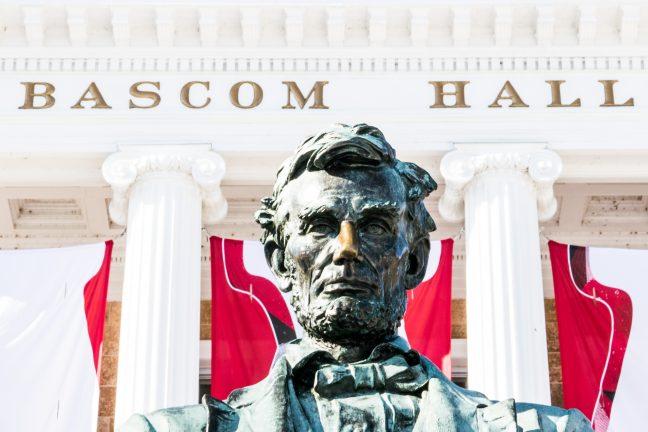The University of Wisconsin System Board of Regents approved a proposal to restructure UW College and UW-Extension earlier this month, but some faculty and staff members feel their voices were not considered in the decision making process.
Under the proposed resolution, the 13 UW System colleges will be joined with seven four-year institutions, effective July 1, 2018.
Some faculty and administrators voiced concerns over the timeline for implementation of the plan, a span of less than a year.
Greg Summers, UW-Stevens Point Provost and Vice Chancellor for Academic Affairs, said the plan would be enacted by the July 1st deadline, but it’s not yet clear what will change by that deadline.
“The important thing to remember, is there’ll be some things that change, but a lot is going to stay the same,” Summers said. “Think of July 1st as sort of the first stage.”
The transition to a UW System merger will take a few years and it will probably happen in stages as the plan is implemented, Summers said. While carrying the plan out in stages might remove some anxiety from the transition process, he said each additional college brings a new set of issues that adds more layers of uncertainty to institutional problems they were already trying to solve.
The key budget details have not yet been discussed among the restructuring plan steering committee members, but would be an important step moving forward, Summers said.
UW System President Ray Cross admitted at a November BOR meeting that the proposal did not include any financial information. He emphasized the proposal was just meant to start the beginning phases of restructuring, and further research would occur if it was approved.
Cross also said the main goal of restructuring was not to save money, but to increase the accessibility of higher education options for Wisconsin residents. However, he said the process could become more cost-efficient in the future as the plan carries forward.
But institutional budgets and enrollment are closely tied together, and both have seen declines in recent years. Recent financial and enrollment issues have already sparked some UW System campuses to take institutional action.
UW-Superior announced it would suspend 25 academic programs, UW-Madison School of Business considered suspending admission to its Master of Business Administration program and UW-Stevens Point proposed eliminating the Geography and Geology Department last month as part of a larger course restructuring initiative. Ultimately, UW-Madison WSB and UW-Stevens Point did not take action, but UW-Superior is still moving forward with the academic program suspension plan as of now.
After UW-Superior officials announced the changes last month, several university students protested the decision, as reported by the Superior Telegram. Additionally, faculty members across the UW System, like UW-Madison sociology professor and faculty senate member Chad Goldberg, have signed a petition to oppose the suspension of academic programs at UW-Superior.
“I’m deeply disturbed by the situation at UW-Superior,” Goldberg said. “Faculty and students were not consulted about the decision … these program closures are a continuation of aggressive efforts to dismantle public higher education in Wisconsin.”
UW-Superior wasn’t the only institution to use collective gathering power to oppose unpopular administration decisions. After UW-Madison WSB publicized its proposal to suspend admission for the full-time MBA program, waves of alumni spoke out against it.
Class of 2016 Graduate Business Association president Jane Allen created a petition calling for WSB Dean Anne Massey to retain the full MBA program at UW-Madison.
“It sounded like the decision had already been made to close the program without being consulted or having our feedback taken into account,” Allen said. “It just felt like, as stakeholders, we should have had some methods for feedback before we heard about it through social media.”
More than 750 people signed the petition, which Allen saw as a success. Massey withdrew her proposal sometime afterward and WSB will now retain the full-time MBA program.
Some faculty and staff were also concerned the restructuring process could have impacts on hiring and retention for several positions at UW System institutions.
Noel Radomski, Director of the Wisconsin Center for the Advancement of Postsecondary Education, said many questions still remain about faculty and staff contracts already signed for the next academic year.
Radomski said the restructuring proposal could change criteria for faculty on a tenure track plan, which are unique to each institution, and may invalidate certain contracts.
This is just one example of several problems that could arise, indicating a lot more conversation was necessary before the proposal moved forward, Radomski said.
“All of a sudden, as of July 1st, [some faculty] will become UW-Milwaukee [faculty], but UW-Milwaukee has it’s own set of criteria,” Radomski said. “What’s going to happen?”


